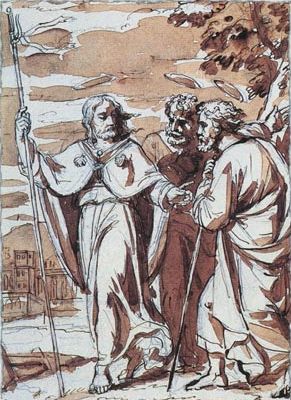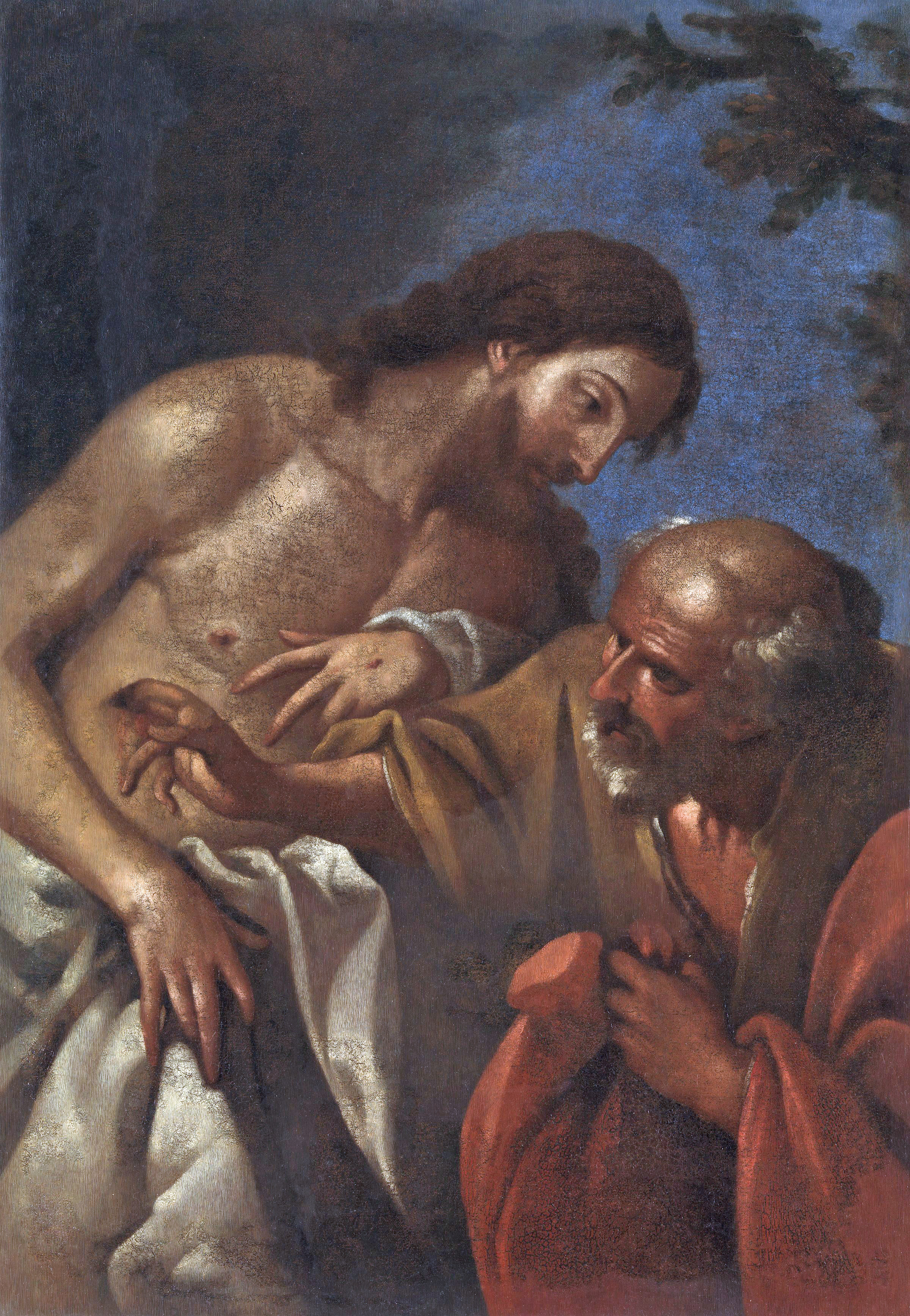Easter Sunday3 (26 Apr 2009)
Ac 3.13-15,17-19; Ps 4; 1Jn 2.1-5a; Lk 24.35-48
Homily of Fr. Paul Panaretos, S.J.
Energetic, Enthusiastic and Alert
Ac 3.13-15,17-19; Ps 4; 1Jn 2.1-5a; Lk 24.35-48
Homily of Fr. Paul Panaretos, S.J.
Energetic, Enthusiastic and Alert
The 50-day Easter festival allows us to fall deeper into the mystery of our crucified and risen Messiah. Lest our spirits wilt along with petals of the lilies, we can use every reminder that our Messiah is the Living One, the author of life [we] put to death, but God raised him from the dead; of this we are witnesses. I’d like to reflect with you on our witness.
One thing witness is not is seeing the resurrection happen. No one saw it. The message of the empty tomb underscores that God alone raised [Jesus] from the dead. God did not resuscitate Jesus’ corpse. Resuscitation brings back to life a person who had slipped away from life. Resuscitation isn’t resurrection.
 Resurrection is an astonishing transformation. It is God’s work beyond time and history and beyond human knowing. The message of the appearances of the risen Jesus is that people encountered the living One as truly alive and transformed beyond immediate recognition.
Resurrection is an astonishing transformation. It is God’s work beyond time and history and beyond human knowing. The message of the appearances of the risen Jesus is that people encountered the living One as truly alive and transformed beyond immediate recognition.The first witnesses recognized Jesus by the marks of his death in his glorious flesh. Jesus helped them to see him as a living, bodily presence: “Have you anything here to eat?” They gave him a piece of baked fish; he took it and ate it in front of them. They became his witnesses because he encountered them.
Risen Jesus is more powerfully present by his Spirit now that Jesus no longer appears to us in surprising forms. Risen Jesus speaks to us in the word written about him. Risen Jesus consoles us in each person’s experiences of forgiveness of sins and of becoming whole. Because we are human we respond--often wordlessly yet with feeling--to risen Jesus in moments of sacrament, of community, of serving and of being served.
Luke’s narrative artistry makes the account of risen Jesus and the two disciples walking to Emmaus more attractive./1/ Yet narrative is two-way. Our experiences of connecting with Jesus in sacrament, in community, in serving and in being served bring to life Luke’s richly and subtly detailed scene.
As often happens the gospel turns things upside down. The disciples offered hospitality, prevailing on Jesus to accept it, yet the risen Lord served them, helping them to rise above their fatigue of grief, their frustration over dashed hopes and forgetting God’s promises in him.
 More than anything else that may be why we connect with that resurrection appearance. Grief feels as if it will never end no matter how many times we say it will. Shattered hopes frustrate any confidence we may have in others, in ourselves, in the future. We forget God’s promises more often than we shape our lives by them.
More than anything else that may be why we connect with that resurrection appearance. Grief feels as if it will never end no matter how many times we say it will. Shattered hopes frustrate any confidence we may have in others, in ourselves, in the future. We forget God’s promises more often than we shape our lives by them.The encounter with risen Jesus transformed the two disciples, fatigued, frustrated and forgetful, into energetic, enthusiastic and alert apostles. The more we allow risen Jesus to encounter us in sacrament, community, service and in being served, the more energetic, enthusiastic and alert apostolic witnesses we become.
In your daily 15 minutes with Jesus this week continue feeling recreated by our triune God. Ask the two disciples to welcome you and present you to Jesus. Converse with Jesus: ask Jesus to open your mind to understand the Scriptures and others’ testimony to him; tell Jesus your desire to be a more energetic, enthusiastic and alert apostle of his resurrection in how you live and work. Name what holds you back and place it in Jesus’ hands. Close by saying slowly the Lord’s Prayer. To request our daily bread is an empty request until we give our Redeemer what keeps us from making room for his divine gifts.
____________
1. The opening verses of today’s gospel selection is the hinge between that memorable scene and the appearance of risen Jesus to the gathered disciples described in the succeeding verses of this gospel selection.
____________________________________________
Wiki-images of an ivory relief of risen Jesus appearing to his disciples and of risen Jesus walking with the two disciples are in the public domain.




